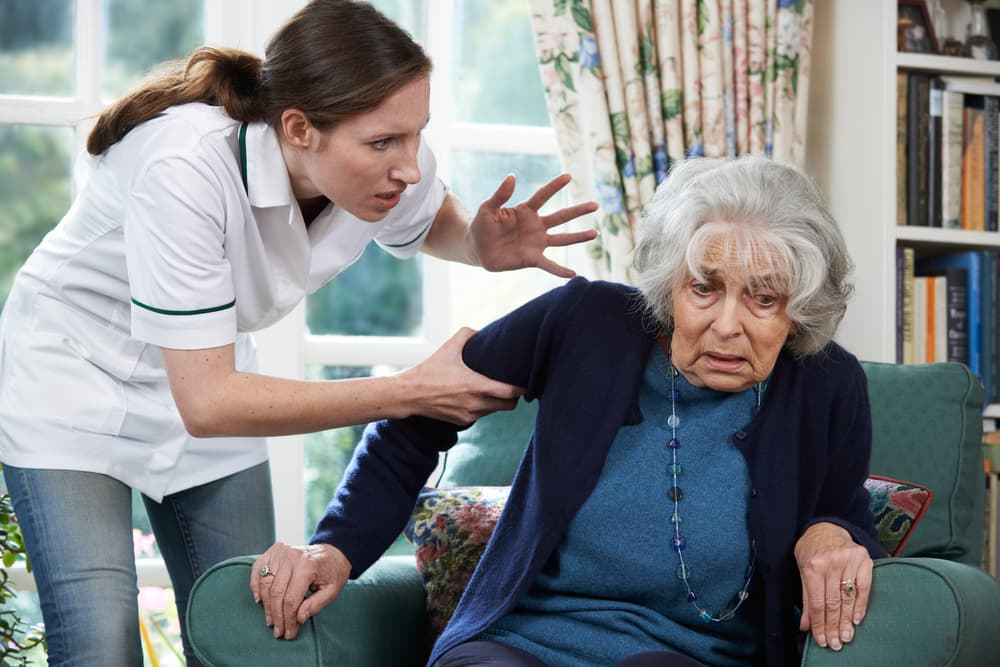Many victims don’t report their abuse for fear of retaliation or they are unable to communicate their experiences. This means that more cases go unnoticed which increases the rate of harm. If you suspect your family member is being abused in a Memphis nursing home, you need to act quickly to protect them and their rights. Contact a Memphis nursing home abuse lawyer from Wright Gray Law Firm to see if you have grounds to seek compensation through a civil action.
No one wants to have to make the choice whether to move a loved one into a long-term care facility. But sometimes, when they require round-the-clock nursing care, a nursing home is the only option. We trust nursing home staff to take care of our family members. When a caregiver harms a vulnerable person in their care, nursing home abuse and neglect shouldn’t go unreported. You must fight on behalf of your loved one. Nursing home abuse and neglect is a serious issue that can have devastating effects. If you or someone you know is a victim of mistreatment, our Memphis lawyers can help.
Memphis Nursing Home Abuse Guide
- Why Choose Wright Gray Law Firm for Your Nursing Home Abuse Claim?
- How Common is Nursing Home Abuse?
- What Are the Most Common Types of Nursing Home Abuse Cases?
- What Causes Nursing Home Abuse?
- What Are the Signs and Symptoms of Nursing Home Abuse and Neglect?
- Has a loved one been injured in a nursing home?
- What Should I do if I Suspect My Loved One is a Victim of Nursing Home Abuse?
- How Can a Lawyer Help with My Nursing Home Abuse Case?
- Contact the Memphis Nursing Home Lawyers at Wright Gray Law Firm Today
Why Choose Wright Gray Law Firm for Your Nursing Home Abuse Claim?

Wright Gray Law Firm was founded by two experienced personal lawyers who wanted to combine forces to provide fierce legal representation to people injured in accidents due to no fault of their own. With nearly six decades of combined experience, we have recovered tens of millions in settlements, judgments, and verdicts for our clients.
If you have evidence that suggests your loved one is being abused at their nursing home or assisted living facility, we can help you seek justice and compensation on their behalf by holding the facility accountable through a civil action. Contact us today for your free and confidential consultation, and let’s discuss your options for financial recovery.
How Common is Nursing Home Abuse?
Elder abuse and nursing home abuse are surprisingly common in the U.S. According to the Centers for Disease Control and Prevention (CDC), about 10% of older adults living at home experience some form of abuse. Recent studies show that over 16% of older adults who live in nursing homes or assisted living facilities are subject to abuse. Health officials believe that number is even higher since many cases likely go unreported because residents fear retaliation or are unable to communicate what is happening to them.
What Are the Most Common Types of Nursing Home Abuse Cases?
Nursing home abuse refers to the mistreatment or harm inflicted upon residents of a nursing home or long-term care facility. These facilities are meant to provide care and support for elderly individuals and those with disabilities who may not be able to live independently. Nursing home abuse can take various forms, including.
Neglect
Neglect occurs when caregivers or staff fail to meet a resident's basic needs, such as providing food, water, proper hygiene, medication, or necessary medical care. Neglect can lead to physical and psychological harm.
Emotional or Psychological Abuse
Emotional abuse includes verbal insults, threats, humiliation, or other behaviors that cause emotional distress, fear, or mental suffering. Isolation and intimidation are also forms of psychological abuse.
Physical Abuse
This involves the use of physical force or violence that results in bodily harm, pain, or injury to a resident. Examples include hitting, slapping, pushing, or restraining a resident inappropriately.
Sexual Abuse
Sexual abuse involves any non-consensual sexual activity or harassment directed toward a resident. It is a particularly egregious form of abuse and a serious violation of their rights and dignity.
Financial Abuse
Financial abuse, often referred to as financial exploitation, involves the unauthorized or improper use of a resident's finances or assets. This can include theft, fraud, coerced transactions, or manipulation of financial documents.
What Causes Nursing Home Abuse?
Nursing home abuse can occur for various reasons, and it is a serious and concerning issue. Some common causes and contributing factors to nursing home abuse include:
- Staffing Issues: Insufficient staffing levels, high turnover, and inadequate training can lead to neglect and abuse of residents. Overworked or poorly trained staff may not provide the necessary care and attention to residents.
- Understaffing: When nursing homes are understaffed, caregivers may be overwhelmed and unable to meet the needs of all residents, which can result in neglect or abuse.
- Inadequate Training: Improper training of nursing home staff, including caregivers and administrators, can lead to a lack of awareness about residents' rights, proper care techniques, and appropriate behavior.
- Caregiver Stress and Burnout: Caregivers in nursing homes often face high levels of stress and burnout due to the demanding nature of their work. This stress can sometimes manifest as abusive behavior.
- Lack of Oversight: Inadequate regulatory oversight and enforcement can contribute to abuse going unnoticed and unpunished.
- Resident Vulnerability: Many nursing home residents are vulnerable due to physical or cognitive impairments, making them targets for abuse. They may be unable to communicate their experiences or defend themselves effectively.
- Poor Management: Ineffective management and leadership within nursing homes can contribute to an environment where abuse can occur without consequence.
- Personal Issues: Some abusive staff members may have personal issues or a history of violent behavior that they bring into the workplace.
- Institutional Culture: An organizational culture that prioritizes profit over resident care can create an environment where abuse may be more likely to occur.
- Lack of Family Involvement: When family members are not actively involved in the care of their loved ones in nursing homes, it can make it easier for abuse to go unnoticed.
Family members and friends of nursing home residents can play a crucial role in ensuring the safety and well-being of their loved ones by being vigilant and proactive in monitoring the quality of care provided in these facilities. Additionally, regulatory agencies and advocacy groups work to improve oversight and accountability in nursing homes to prevent and address abuse.
What Are the Signs and Symptoms of Nursing Home Abuse and Neglect?
When you move a loved one into a nursing home, you expect they will receive a high-quality of care. But sometimes staff deviates from the standards of care and puts vulnerable residents in harm’s way. Nursing home abuse can have serious physical and psychological consequences for the victims. It is important for family members, friends, and staff to be vigilant and report any signs of abuse.
When visiting your family member, you should be aware of and look for signs and symptoms of abuse or neglect, such as:
- Unexplained Injuries: Bruises, cuts, fractures, or other physical injuries that cannot be adequately explained by the staff or the residentss themselves.
- Emotional or Behavioral Changes: Sudden changes in a resident's mood or behavior, such as depression, anxiety, withdrawal, or fear. They may become more isolated or exhibit signs of emotional distress.
- Poor Hygiene: Neglecting personal hygiene, including unwashed hair, soiled clothing, or unclean living spaces.
- Weight Loss or Malnutrition: Significant and unexplained weight loss, signs of dehydration, or malnutrition can indicate neglect or improper care.
- Medication Mismanagement: Residents receiving the wrong medication, incorrect dosages, or experiencing adverse reactions to medication.
- Bedsores (Pressure Ulcers): The development of bedsores, particularly in individuals who are immobile or bedridden, can be a sign of neglect, as proper repositioning and wound care are essential in preventing bedsores.
- Unsanitary Conditions: Dirty or unsanitary living environments, including soiled bedding, unclean facilities, or pests.
- Agitation or Fear of Caregivers: A resident's expressed fear, discomfort, or reluctance to be around certain staff members.
- Financial Irregularities: Unexplained withdrawals from a resident's bank account, missing funds, or unauthorized transactions involving the resident's finances.
- Overmedication or Sedation: Instances where residents are excessively sedated, which can be used to control or subdue them, or to avoid providing proper care.
- Resident-to-Resident Abuse: Be alert to signs of abuse or aggression among residents, which may indicate a lack of supervision and safety measures.
- Delayed or Denied Access to Medical Care: If a resident is denied timely access to necessary medical treatment or examinations.
- Inadequate Staffing: Insufficient staff-to-resident ratios can contribute to neglect and abuse, as staff may be overworked and unable to provide proper care.
Has a loved one been injured in a nursing home?
If you suspect elder abuse or neglect at a nursing home, contact us immediately. Our lawyers will launch an investigation to determine the validity of your claim. If they find proof, they will help you take legal action.
What Should I do if I Suspect My Loved One is a Victim of Nursing Home Abuse?
If you suspect that your loved one is a victim of nursing home abuse, it's crucial to take immediate action to ensure their safety and well-being. Here are some steps you should consider:
- Talk to your loved one: Open a dialogue with the resident and ask about their experiences and any signs of abuse or neglect they may have noticed. Keep in mind that they may be afraid to speak up, so be patient and understanding.
- Document your concerns: Make notes of any physical or behavioral changes in your loved one, take pictures if applicable, and keep a record of any suspicious incidents. This documentation can be crucial for providing evidence later if necessary.
- Report your concerns to the nursing home: Speak with the nursing home's administration or management and express your concerns. Request a meeting to discuss the issues and ask them to investigate. Be sure to follow up to ensure that your concerns are addressed.
- Contact the appropriate authorities: If you believe the nursing home is not taking the issue seriously or if you suspect immediate danger, you should contact the appropriate authorities. You can call Adult Protective Services at 1-888-277-8366 or the Tennessee Domestic Violence Hotline at 1-800-356-6767. In the Memphis and Shelby County area, you can also report elder abuse cases by calling the Memphis Crisis Center at 901-274-7477.
- Seek legal advice: Consult with an attorney who specializes in elder abuse or nursing home neglect cases. They can provide guidance on how to protect your loved one's rights and pursue legal action if necessary.
- Talk to a medical professional: Ensure your loved one receives a medical evaluation to assess their physical and mental health. Document any injuries or health issues that may be related to abuse.
- Consider relocating your loved one: If the abuse or neglect continues or is not adequately addressed, consider moving your loved one to a different nursing home or care facility. This may be a difficult decision, but their safety and well-being should be the top priority.
- Stay involved and vigilant: Continue to visit and support your loved one, and stay engaged in their care. Regular visits and communication can help deter potential abusers and provide emotional support to your loved one.
- Seek counseling and support: Both you and your loved one may benefit from counseling or support groups to help cope with the emotional impact of nursing home abuse.
- Encourage your loved one to assert their rights: Make sure your loved one is aware of their rights as a resident in a nursing home and encourage them to speak up if they experience mistreatment.
Remember, nursing home abuse is a serious issue, and it's important to take action promptly to protect your loved one. If you suspect abuse, trust your instincts and advocate for their well-being.
How Can a Lawyer Help with My Nursing Home Abuse Case?
A lawyer from Wright Gray Law Firm can assist with your nursing home abuse claim in the following ways:
- Free Consultation: Start by scheduling a free consultation with our compassionate attorneys. We will listen to your concerns, evaluate your case, and provide you with clear guidance on the legal options available to you.
- Investigation and Advocacy: We will launch a thorough investigation into the allegations of abuse. We work with experts, collect evidence, and build a strong case to hold the responsible parties accountable.
- Legal Expertise: Our experienced team specializes in nursing home abuse cases. We have a deep understanding of the laws and regulations governing nursing homes in Memphis, and we know how to navigate the legal system effectively.
- Compassionate Support: We understand the emotional toll nursing home abuse takes on families. Our team offers not only legal expertise but also emotional support throughout the process. We are here to answer your questions, address your concerns, and provide the guidance you need.
- Fighting for Compensation: Our goal is to secure the compensation your loved one deserves for the harm they've suffered. This includes medical expenses, pain and suffering, and any other damages caused by the abuse.
Don't let nursing home abuse go unaddressed. Your loved one's well-being and safety are paramount. Contact us today to start the journey toward justice and healing.
Your family deserves peace of mind, and your loved one deserves a safe and caring environment. Take action now by calling Wright Gray Law Firm for your free consultation. Together, we can fight for justice and protect the rights of your loved one.
Contact the Memphis Nursing Home Lawyers at Wright Gray Law Firm Today

When your loved one enters a nursing home, you trust that they will receive the care and respect they deserve. Unfortunately, nursing home abuse is a disturbing reality for many families in Memphis. If you suspect that your loved one has been a victim of neglect or mistreatment, it's time to take action.
At Wright Gray Law Firm, we are dedicated to holding negligent nursing homes accountable for their actions. Our experienced team of Memphis nursing home abuse attorneys is here to help you seek justice and ensure that your loved one's rights are protected. We understand the pain and frustration that comes with discovering nursing home abuse, and we're here to guide you through the legal process.
Contact our personal injury lawyers at Memphis today at 504-500-0000 or through our online form for a free and confidential consultation, and to hear your legal options.
Client Testimonial
"My experience with this law firm was outstanding! Rosalyn Dobbins is an exceptional Attorney who puts her clients first. This is a top notch personal injury law firm, and the entire team is spectacular. I would recommend this law firm to any of my friends, family, or associates because I am 100% sure they will be well taken care of." Colleen C.
Wright Gray Trial Lawyers - Memphis Office
5050 Poplar Ave Suite 1925
Memphis, TN 38157
P: 504-500-0000






